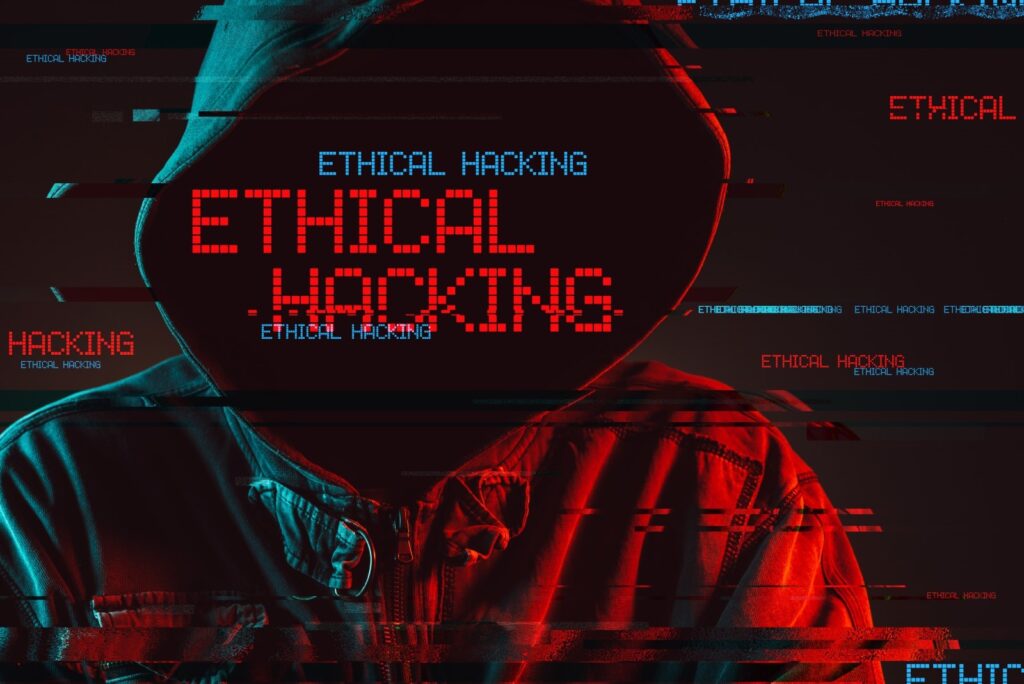What Is an Ethical Hacker? Using “Bad” for Good in Cyber Security
In cybersecurity, the “ethical hacker” concept might seem paradoxical at first glance. How can someone be considered a “hacker” while being ethical? According to EC-Council, Ethical hacking involves an authorized attempt to gain unauthorized access to a computer system, application, or data. An ethical hack consists in duplicating the strategies and actions of malicious attackers. In this blog post, we’ll explore the fascinating world of ethical hacking, its vital role in bolstering cybersecurity, and how these skilled individuals use their expertise for the greater good.
Understanding Ethical Hacking
Ethical hacking, penetration testing, or white hat hacking is a proactive approach to identifying and addressing security vulnerabilities in computer systems, networks, and applications. Ethical hackers are cybersecurity experts who possess the same skills and techniques as malicious hackers (black-hat hackers) but utilize their knowledge for lawful and positive purposes.
The Ethical Hacker’s Mission
The primary mission of an ethical hacker is to safeguard organizations and individuals against potential cyber threats by proactively testing their systems for weaknesses. They aim to preempt cyberattacks and data breaches by identifying vulnerabilities before malicious hackers can exploit them.

Roles and Responsibilities
- Vulnerability Assessment: Ethical hackers thoroughly assess an organization’s digital infrastructure, searching for potential security loopholes and weaknesses.
- Penetration Testing: They simulate real-world cyberattacks to evaluate the effectiveness of existing security measures.
- Network Security: Ethical hackers ensure that networks are fortified against unauthorized access and data breaches.
- Application Security: They scrutinize applications to identify and fix security flaws that hackers could exploit.
- Security Consultation: Ethical hackers offer expert advice and guidance on cybersecurity best practices to help organizations improve their security posture.
Ethical Hacking vs. Black-Hat Hacking
While ethical and black-hat hackers possess similar technical skills, the critical difference lies in their intent and actions. Ethical hackers abide by the law and seek authorization before conducting security tests. In contrast, black-hat hackers engage in illegal activities to steal data, cause harm, or disrupt digital systems.
Ethical hacker vs. penetration tester
Ethical hackers and penetration testers are cybersecurity professionals focused on identifying vulnerabilities in computer systems, networks, and applications. However, while ethical hackers use their skills and tools for proactive defense, seeking authorization to conduct security tests, penetration testers perform controlled attacks to assess the effectiveness of existing security measures.
The hacker aims to strengthen protection and prevent potential cyber threats. At the same time, the penetration tester evaluates the system’s resilience to unauthorized access and data breaches, offering recommendations to improve overall cybersecurity. Both roles are essential in safeguarding digital assets and ensuring robust protection against evolving cyber threats.
Importance of Ethical Hacking
Ethical hacking is crucial in maintaining a secure digital environment for businesses, governments, and individuals. By exposing vulnerabilities and weaknesses, hackers enable organizations to strengthen their defenses, prevent data breaches, and protect their customer’s sensitive information.
Ethical Hacking in Today’s Cyber Landscape
The demand for hackers has soared with the ever-increasing sophistication of cyber threats. As technology evolves, new vulnerabilities emerge, making the role of ethical hackers even more essential in safeguarding against potential attacks.
Wrapping Up: Recognizing Ethical Hackers’ Role in Cybersecurity
Ethical hackers are the unsung heroes of the digital world, using their unique skills and knowledge to defend against cyber threats. Their commitment to keeping our digital world safe and secure is commendable. As we navigate an increasingly interconnected world, the invaluable contributions of hackers in cybersecurity remain vital to protect both businesses and individuals from the perils of the cyber landscape. Embracing and supporting ethical hacking ensures we can harness the power of “bad” for good and continue fortifying our digital defenses. For more insightful blogs, visit auxin.io.






